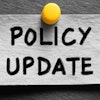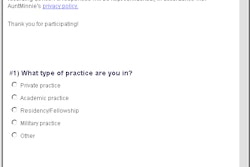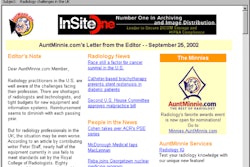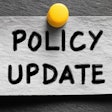If you’re a New Jersey radiologist who expects prompt payment for services rendered, you may be disappointed. According to an article in the July issue of the American Journal of Roentgenology, only 70% of claims in the state are paid within 40 days, and it can take as long as 170 days for 93% of submitted claims to be reimbursed by six major U.S. payors.
Prompt payment for healthcare services rendered on the U.S. level is defined by the Public Health Service Act. Title 42 USC 1395u(c)(2)(B) states that health insurers and healthcare service plans other than HMOs are required to reimburse any uncontested portion of any claim no later than 30 working days after receipt of the claim by the insurer or healthcare service plan. HMOs are required to pay within 45 working days.
Insurers and healthcare service plans that pay late on federal claims must pay a penalty of 10% per year on all late payments beginning with the first calendar day after the 30 (or 45) working day period has elapsed. Reference to a requirement to "pay interest" is generally interpreted as simple interest, not compound interest, unless expressly specified as such.
All but three states (Idaho, Nebraska, and South Carolina) and the District of Columbia had prompt-payment laws on the books as of April 2002. New Jersey enacted its prompt-payment legislation on December 28, 1999. Its Prompt-Pay Act specifies that payment is required within 30 days of electronic submission and 40 days for nonelectronic submission. Late-payment penalties are calculated at a simple interest rate of 10% and are supposed to accompany reimbursement.
Benchmarks
The Radiological Society of New Jersey (RSNJ) performed a retrospective analysis of 33,537 claims submitted in February and June 2000, 1 and 5 months after the New Jersey legislation was enacted. The claims were submitted by a common third-party billing company (Dominion Medical Management, Richmond, VA) on behalf of 93 radiologists in 11 radiology practices. The practices were of varying sizes, from hospital to private office, and were based in northern and central New Jersey.
The payors selected by RSNJ were Aetna, Cigna, Horizon Blue Cross Blue Shield of New Jersey, Oxford, Prudential, and U.S. Healthcare. As a group, these payors represent 71.5% of the New Jersey managed care market, according to the researchers.
The claims were tracked by date of service, Current Procedural Terminology, 4th Edition (CPT-4) code, description, charge amount, date of claim submission, payment date, payment amount, and days from submission to payment. The radiology groups in the study filed claims both electronically (61%) and by mail (39%).
The researchers set a date of 40 days before a claim was considered late, and marked a claim as paid even if only partial payment was received. Claims were followed until a payment was received, or 170 days had elapsed, at which point they marked the claim as unpaid. The claims were then assigned a category (<30 days, 31-40 days, 41-50 days, 61-90 days, and >90 days) based on the date of payment.
In addition, the RSNJ team performed a detailed analysis of 3,156 claims from one practice in February 2000 to determine a clean-claims submission rate. Of these claims, 7% were disputed by the payors, representing a 93% clean-claim rate.
The check’s in the mail
For February and June 2000, Aetna reimbursed 76% of the claims within the 40-day window; Cigna processed 8%; Horizon Blue Cross Blue Shield of New Jersey paid 80% and 65%, respectively; Oxford, 81% and 87%; Prudential, 58% and 86%; and U.S. Healthcare, 70% and 82%. As a whole, this represents a reimbursement rate of 70% for February and 69% for June.
For the clean-claims sub-group, Aetna paid 86% of the clean claims within 40 days; Cigna, 13%; Horizon Blue Cross Blue Shield of New Jersey, 70%; Oxford, 69%; Prudential, 66%; and U.S. Healthcare, 87%. Overall, only 57% of the clean claims filed were paid within 40 days.
The RSNJ audit calculated the amount of the total late claims (7,919) at $428,316. On the basis of this figure, the overdue penalty would be $23,939 at simple interest of 10% from the 41st day payment was due until the average of 74 days when payment was received.
"Our results clearly show that most claims either paid late or not paid during the time frame of this study occurred without any explanation, rather than as the result of a dispute," wrote lead author Dr. Lawrence Swayne and colleagues. (AJR, July 2002, Vol. 179:1, pp. 21-25).
The data analysis conducted by the RSNJ audit team does not hold out hope that prompt-payment legislation alone will improve the timeliness of reimbursement.
"Providers continue to complain that payment is significantly delayed or outright denied. Our data, showing persistent payment delays 1 and 5 months after implementation and 7-11 months after passage of the New Jersey Prompt-Pay Act, substantiate these observations and suggest that prompt-payment audits, in conjunction with active enforcement, may be required to encourage compliance," the report stated.
By Jonathan S. Batchelor
AuntMinnie.com staff writer
July 18, 2002
Related Reading
Study finds wide variation in health spending across states, July 10, 2002
Louisiana doctors to sue health plans over contract, payment issues, July 6, 2002
New diagnosis guidelines could affect your operations and reimbursement, December 18, 2001
Capitation caveats yield contract creativity, November 26, 2001
What every radiologist should know about medical billing, July 27, 2001
Copyright © 2002 AuntMinnie.com



















